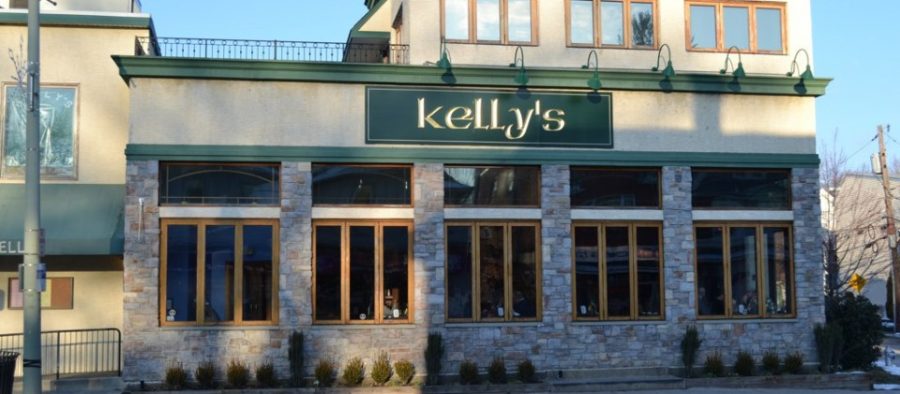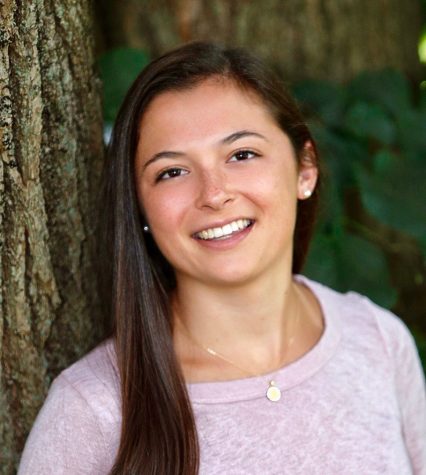Kelly’s Cracks Down on Fake IDs, Students Placed on “Tagged List”
Students of age who have previously used false identification at Kelly’s have to do community service in order to be unbanned.
October 5, 2022
Picture this. It’s 12:01 am on your 21st birthday. You make it to the front of the line at Kelly’s at the perfect time. With a wrinkled $5 bill in your hand and a cowboy hat on your head, you’re ready to finally be able to enjoy Country Tuesdays with your peers.
You hand your ID to the bouncer with a shaky hand, as you’re still getting used to the idea that what you’re doing is actually legal. The machine blinks red. “Sorry, you’re banned,” the bouncer says. Wait….what?
With a new ID scanner in place at Kelly’s Taproom, Villanova’s famous watering hole, customers who used a fake ID in the past are now placed on a “tagged list” and are unable to enter the establishment, even if they’re now of legal drinking age.
Kelly’s is owned by the same people who run Flip and Bailey’s Bar and Grill, another famous Villanova bar. The University is known for having only a few bars in the area, and students often try to push their luck at these establishments before they are the legal drinking age and attempt to enter with fake IDs. This fall, the now-21 year old students who have visited Kelly’s and Flip’s in the past are facing a problem they never thought they’d have again: the inability to enter a bar.
“We invested a lot of money in new scanners,” said Angie, owner of both Kelly’s and Flip’s, who asked that her not name not be used. “We’ve been dealing with (fake IDs) for many years, and it’s just gotten more significant. I have one (student) who presented eight different states. It’s just very difficult when you’re receiving the same name but from a different state every other night.”
Angie explained that Kelly’s is constantly in fear of losing its liquor license, and it’s doing its best to combat underage drinking.
“We’re always worried about losing it,” she said. “There’s so much liability out there. We want to be good to the community, we want to be good business owners, we want to be good operators. We implemented this because we’re tired of the fake IDs.”
“I’ve gone to Kelly’s twice this semester,” said a senior who wished to remain anonymous. “I wasn’t there for very long, and it wasn’t like I was belligerently drunk or anything.”
This senior turned 21 over the summer, but last year her fake ID was taken at Flip’s when she tried to get in at 20 years old.
“The third time I went, and I handed (the bouncer) my ID, and it scans, because I’m 21 years old,” she said. “Then the bouncer is like, ‘Sorry, no, you’re banned.’”
The senior questioned the bouncer, unaware of why she would be banned.
“He was like, ‘Have you ever had your fake ID taken?,’ and I was like, ‘Hmm, yeah, maybe,’” the senior said. “I asked the bouncer how I could get off the banned list, and he was, like, ‘That’s out of my paygrade. I don’t know.’”
This senior has yet to return to Kelly’s, and she was disappointed because she had hoped to visit the classic Villanova bar with her mother, who also went to Villanova, on Family Weekend.
“I was really disappointed, because, you know, Kelly’s is a coming of age for seniors,” she said. However, she remains excited for the rest of the semester, remarking sarcastically, “There’s plenty of bars in the sea.”
Another senior who fell victim to this new policy was Grace. Instead of heading to one of the few other bars around Villanova, Grace emailed Kelly’s and asked how she could right her wrong. After weeks of waiting, Grace and other students in the same situation were invited to attend a meeting at Kelly’s.
“I met with the owners of Kelly’s recently with many other Villanova seniors in my same situation, and we were told that we must complete some kind of community service for them,” Grace said. “We are allowed in the establishment under the condition that we comply to whatever they ask of us.”
Another student who wished to remain anonymous also attended the meeting that Thursday, as her fake ID was taken at Kelly’s a week before her 21st birthday last April. She described the meeting as “this weird mix between orientation and detention.”
“They set up a meeting for us to discuss, and they talked about how their liquor license was at risk, and how they needed to crack down on everyone,” she said. “(The owner) was like, ‘I’m going to talk about myself and what Kelly’s is, and if you guys could go around and say your name, major, and where you’re from.’”
“Basically, all of the people that were there, there were maybe 15 of us, but if we want the ban to be lifted we have to agree to five shifts of ‘community service’ working the line at Kellys, making sure no one brings outside alcohol in, or throwing stuff in the bushes, or just behaving poorly outside of Kelly’s.”
“I haven’t done any of the shifts yet, but the ban has since been lifted because I agreed to do it,” she said and explained that these shifts must be completed between now and February. “If we don’t do it, the ban gets replaced, and we’re just, like, banned for life.”
“They said they were open to new suggestions, and I proposed community service around Bryn Mawr,” said another anonymous senior who attended the meeting. “I thought it would be a better idea to help out the community rather than helping out at the bar, but they kinda shut it down right away.”
The Villanovan was able to obtain a copy of the email sent by the Kelly’s owner after a student committed to doing this “community service.”
“Thank you for your patience and attending the meeting,” the email said. “We look forward to continuing the Kelly’s tradition and experience for future students and alumni. Your ban has been removed and I will reach out to you soon about possible dates.”
“That can’t be legal,” the senior student said, explaining her thoughts upon hearing of this new policy. “But I have no moral ground to stand on.”
Yet this actually…potentially…may be legal.
Professor Todd Aagaard, a professor at Villanova’s Charles Widger School of Law, explained that Kelly’s can deny anyone entry based on any criteria they wanted to.
“They could just say every fifth person can’t come in, or everybody wearing green can’t come in, and that’s entirely within their rights,” Aagard said. “This is a private business, and they’re running their business on private property, so they can tell anybody they want that they can’t come in, subject to only anti-discrimination laws.”
Aagard quickly clarified these laws.
“They can’t say you can’t come in because of your race, or you can’t come in because of your religion,” he said. “But frankly they could say you’re too tall. They can come up with any criteria they want as long as they’re not violating anti-discrimination laws.”
Now the potential required community service is where things get sticky.
Professor Ann Juliano, another professor at Villanova’s Charles Widger School of Law, explained that some issues could arise regarding the Fair Labor Standards Act.
“The issue is if today Kelly’s is paying someone to do this, and now they’re making a student do it for free in order to get back into the bar, that’s the problem,” Juliano said. “If it’s something they’re otherwise not paying anyone to do, and they’re not going to, and they say you guys can go clean up the neighborhood, not just Kelly’s, then that would be more like actually community service organized by Kelly’s.”
“If they were generally cleaning the neighborhood, and Kelly’s was telling them to do that, that probably wouldn’t be unpaid labor,” she clarified. “If you’re subbing in the free labor for something you would already pay someone to do, you’re in trouble.”
Kelly’s owner Angie explained that they haven’t decided what their plan is yet.
“We have talked about some suggestions, but it has not been decided,” she said. “It’s not been decided that people can right their wrong.”
“It’s a case by case situation. There are some really good students that have come and been very apologetic about it. They know what they did, and they were forthcoming with the apology. There are others that have not been so calm and protested and lied. It’s case by case. We want to make sure it’s something fair, but it’s also something that gets the message to the freshmen and sophomores, and some juniors. We’re kind of making this plan as we go. I have another round of students I’m going to be talking with in the next couple weeks, and from that we’re going to make a decision on how we’re going to move forward.”
Angie stressed that students need to understand the gravity of the situation.
“I mean they’re presenting an ID, allowing me to sell them a substance, and I could lose my license,” she said. “I don’t think anybody understands the liability that it exposes for small businesses. You lose a liquor license on a restaurant, and that’s your life, that’s your business.”
“We’re just trying to get the message out that it’s a serious issue,” she said. “Don’t ruin your senior year, wait until you’re 21.”



